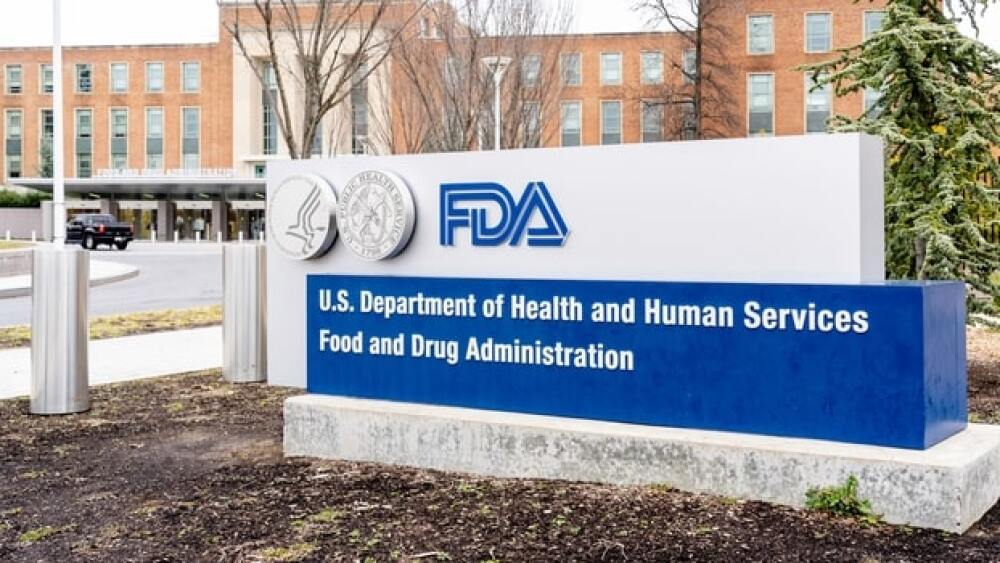Bristol Myers picked up the therapy when it acquired Celgene in 2019 for $74 billion.
JHVEPhoto/Shutterstock
The U.S. Food and Drug Administration (FDA) approved Bristol Myers Squibb’s Breyanzi (lisocabtagene maraleucel; liso-cel) for adults with relapsed or refractory (r/r/) large B-Cell lymphoma (LBCL) after two or more lines of systemic therapy.
This includes diffuse large B-cell lymphoma (DLBCL) not otherwise specified (including DLBCL) arising from indolent lymphoma, high-grade B-cell lymphoma, primary mediastinal large B-cell lymphoma and follicular lymphoma grade 3B.
Liso-cel is a CD-19 directed chimeric antigen receptor (CAR) T cell therapy. CAR-T therapies like Breyanzi are living therapies, where T cells are taken from the patient, engineered in a lab to specifically target the patient’s cancer cells, then reinfused into the patient, where they grow and attack the cancer. It plans a 24-hour target turnaround time, with inpatient or outpatient administration options.
The company plans to launch the therapy at a wide network of treatment centers that will be Risk Evaluation and Mitigation Strategy (REMS) certified. Cytokine release syndrome (CRS) is common, as are neurologic toxicities, which is why the clinics providing the treatments with be REMS certified so they have training in dealing with the potentially lethal side effects.
Bristol Myers picked up the therapy when it acquired Celgene in 2019 for $74 billion. On December 31, 2020, a $9 Celgene Contingent Value Rights (CVR) payout deadline passed. It was one of three required milestones for the CVR. Bristol Myers Squibb said at that time that the CVRs were then terminated, so no longer eligible for payment and no longer allowed to trade on the New York Stock Exchange. There were about 715 million CVR notes in circulation. If the three milestones had been met, the notes would have paid out $6.4 billion to investors.
The CVR was based on FDA approval of three drugs, Zeposia, ide-cel and liso-cel. Ceposia (ozanimod), for multiple sclerosis, was approved in March 2020. The FDA accepted the Biologics License Application for ide-cel, a B-cell maturation antigen (BCMA)-directed CAR-T therapy in September 2019, with a target action deadline of March 31, 2021.
Liso-cel was originally scheduled for approval by November 16, 2020, but the pandemic blew the schedule to pieces. In November 2020, Bristol Myers Squibb indicated that the COVID-19 pandemic delayed travel for FDA inspectors who were scheduled to inspect a third-party manufacturing plant in Texas before the target action date. Potential approval of liso-cel was delayed until the inspection could be completed.
Bristol Myers Squibb indicated in today’s announcement that it plans to manufacture Brenyanzi for each individual patient at its immunotherapy manufacturing facility in Bothell, Washington.
“Breyanzi, a CAR-T cell therapy, will have an important role in clinical practice, offering people living with relapsed or refractory large B-cell lymphoma the chance for sustained response with an individualized treatment experience,” said Samit Hirawat, chief medical officer of Bristol Myers Squibb. “Today’s FDA approval reflects our deep commitment to advancing cell therapy research, developing innovative treatments and supporting patients at every step of their treatment journey.”
DLBCL is a rapidly growing, aggressive disease. It is the most common type of non-Hodgkin lymphoma (NHL) and makes up one out of every three diagnosed cases. Of them, 73% do not respond to or will relapse after second-line treatment or later. For patients who relapse or don’t respond well, there are not a lot of conventional treatment options and median life expectancy is about six months. Breyanzi is hoped to be a curative approach.
The approval was based on results from the TRANSCEND NHL 001 trial of 268 patients with r/r/ LBCL who received Breyanzi. It was administered both inpatient and outpatient. In the trial, 192 patients were treated with Breyanzi and 73% achieved a response, including 54% who had minimal or no detectable lymphoma after treatment, and 19% achieved a partial response. Median duration of response was 16.7 months in all responders, and for patients who did hit CR, a median duration of response was not reached.
“People battling relapsed or refractory large B-cell lymphoma continue to face a challenging treatment journey, both physically and emotionally,” said Meghan Gutierrez, chief executive officer, Lymphoma Research Foundation. “Breyanzi is an innovative treatment that offers a new option for patients, and another reason for this community to maintain hope for the future.”





